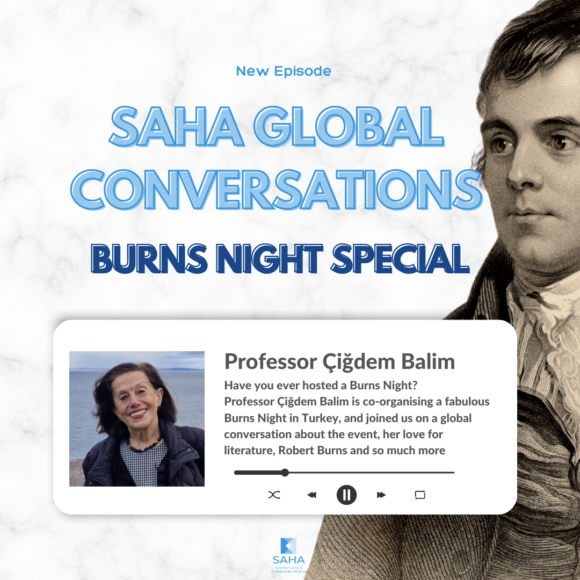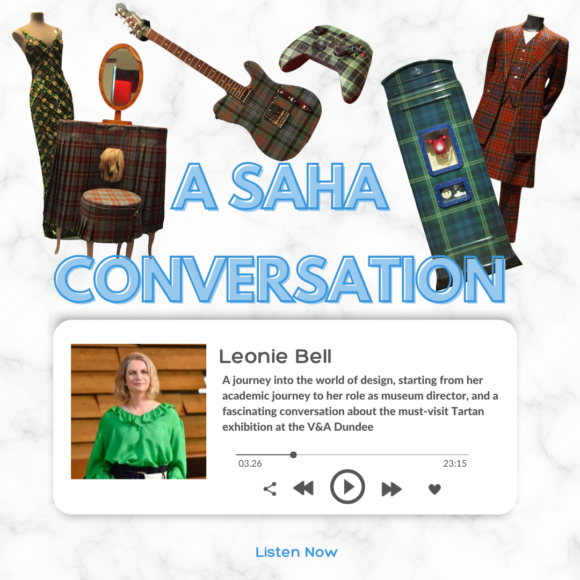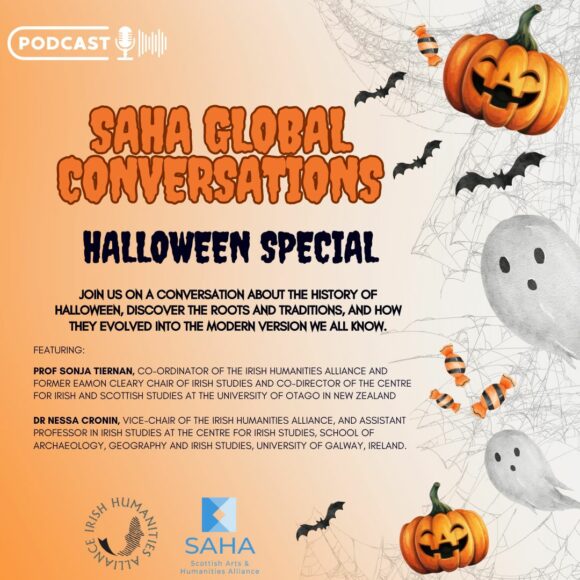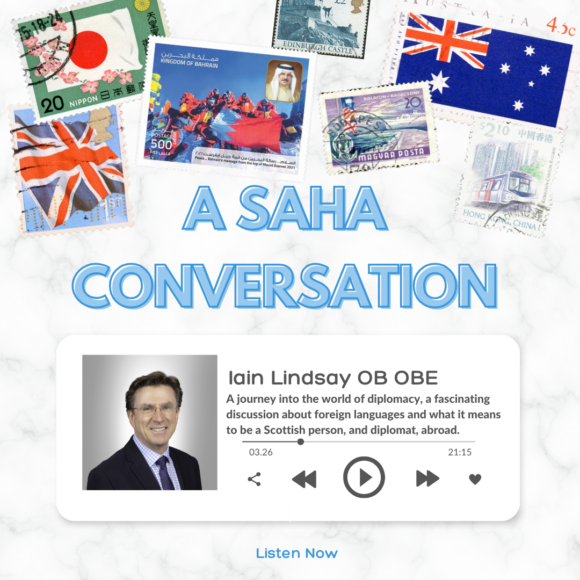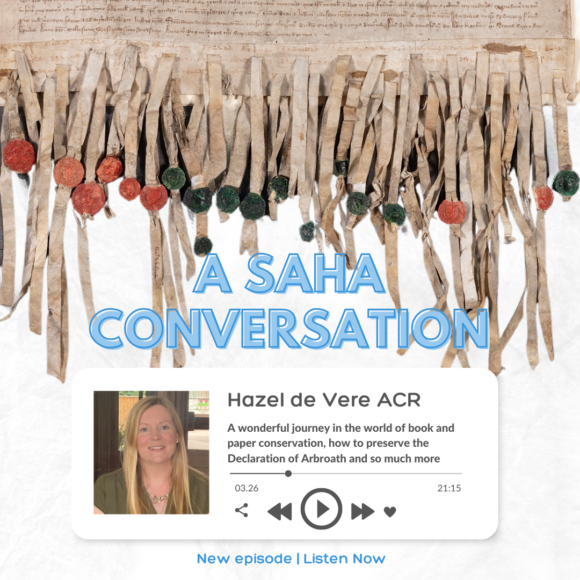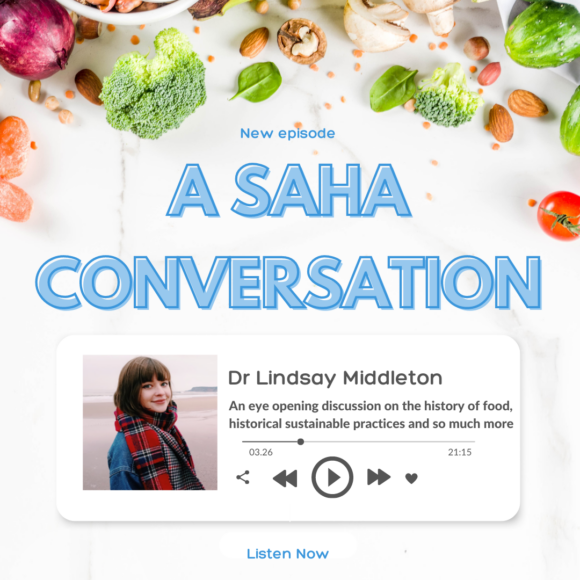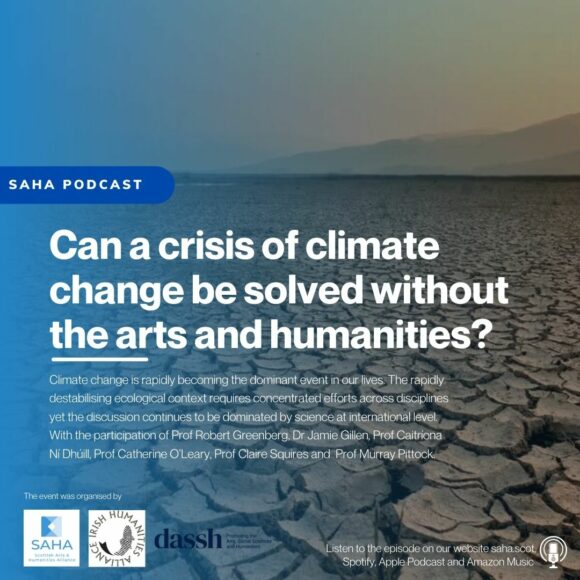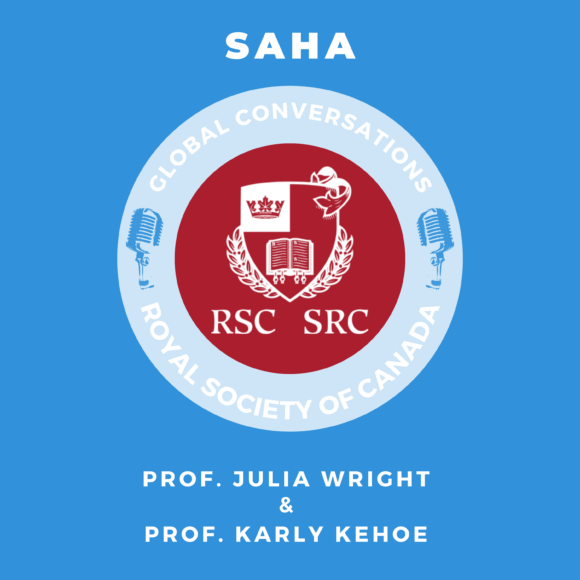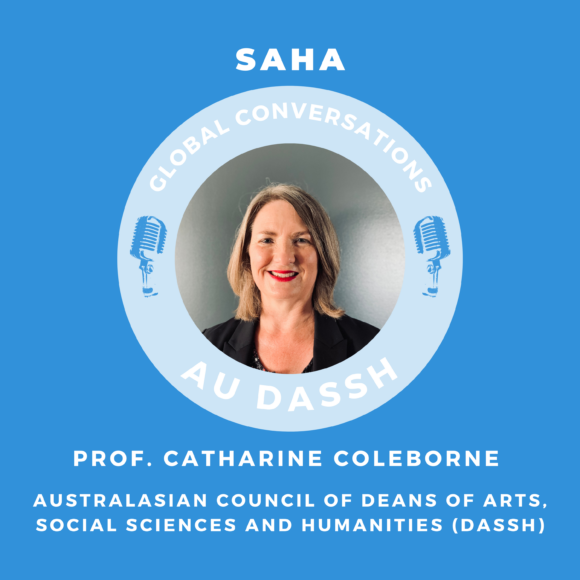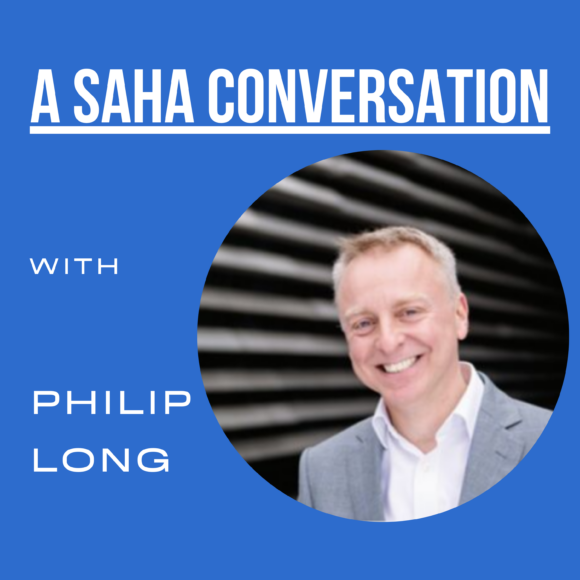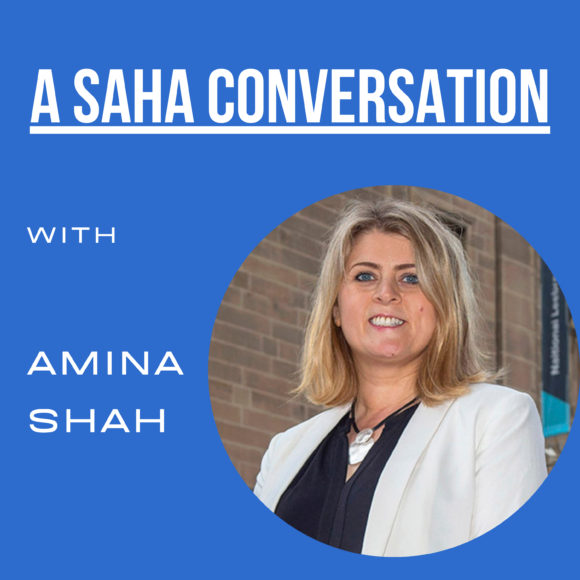We’re delighted to bring you a new SAHA Conversation podcast. Our guest this week is Adam Bruce. Adam is Head of Corporate Affairs at the global renewable energy company, Mainstream Renewable Power. He leads a team responsible for managing political and regulatory risk, public policy and analysis, sustainability, and the company’s brand, reputation and communications. He joined Mainstream in 2008 following the £1.8bn sale of Airtricity, where he was UK Chief Executive. Prior to Airtricity he worked as a solicitor in private practice for twelve years.
He was appointed by the Scottish and UK governments as the first chairman of the Offshore Wind Programme Board, is a former chairman of RenewableUK and a former vice-chairman of WindEurope. He is a Board member of the Global Wind Energy Council. He has previously served on the advisory boards of RE100 and the Coalition for Action of the International Renewable Energy Agency.
Adam is a Trustee of the National Museums of Scotland. He sits on the Development Board of Oxford University’s Maths, Physics and Life Sciences Division. In 2008 he was appointed Unicorn Pursuivant at the Court of the Lord Lyon, and was promoted in 2012 to Marchmont Herald. He read history at Balliol College, Oxford and law at Edinburgh University.
In our SAHA Conversation Adam reflects on his career and education as well as on the types of insights a humanities graduate could bring to work in different contexts. We also discuss the important contribution of arts and humanities to policy making and important debates such as climate change.
Resources mentioned in this episode:
 Transcript
Transcript
A SAHA Conversation with Adam Bruce
[00:01:29] Cristina: Good morning and thank you for joining our SAHA conversation today, Adam.
[00:01:34] Adam: It’s a pleasure.
[00:01:35] Cristina: So you currently work in the energy sector, but you have a background in history and you have worked as a lawyer for a while also. Could you please tell our listeners a little bit about your career trajectory and how this has related to your studies?
[00:01:54] Adam: Sure. My undergraduate studies were in history, mainly medieval history, and… I was reflecting on this actually before our conversation today. I must been sitting in the university library, finishing my undergraduate dissertation, I would begin to call it my undergraduate thesis for that would be far too… to dress it up far too much, my undergraduate dissertation on the arrival of the Normans in 12th century Scotland and beginning to think about what path that would lead me down. And I sent a letter, I wrote to Neil McCormick who was then Regis Professor of Public Law at Edinburgh and had been at the same university I was then at and said: is there a path that will bring me from a dissertation on early medieval Scotland to a second undergraduate degree in law? And he said, absolutely. And so the best part of a year later, I find myself back home in Edinburgh doing the LLB, the truncated two-year LLB and that led me by, in fits and starts, to a traineeship with a Glaswegian firm and then I qualified with them and practiced as a solicitor in and around Glasgow, Edinburgh. I did a stint working for a small firm in St Andrews. I spent some time in London and Brussels, but I think after a few years, and I’m sure that the partners that I worked for and the associates who covered for me would have said that perhaps I am not cut out to be a lawyer, at least not one that would have survived in the increasing cut and thrust of the profession. And around 2005, I think, I had a call from a headhunter asking if I’d like to join a renewable energy company, which was expanding in Scotland called Airtricity. And that’s why I am 12, 13, 14 years later sitting here in the job I love and enjoy every moment, in the growing renewable energy sector. And I don’t regret for an instant either my dissertation on early medieval Scotland or my transition into the law or my ultimate switch to energy.
[00:04:09] Cristina: Yes. I think it’s important to have the courage to take these decisions when you find yourself that your first choice hasn’t worked out quite the way you expected. When you think of your studies, are there particular learnings and experiences that have stayed with you ?
[00:04:26] Adam: Yes, I’m sure there are and I love the ability to take a sort of long helicopter view on issues that I learnt through an undergraduate history degree. And at the same time that the discipline perhaps that the law brought as well has been really, really useful. Because obviously moving into more of a role around government policy, regulation, has meant that there’s often, you know, significant and sometimes rather dense policy documents to be digested and to get to the heart of them and to get to an understanding both of the long term strategic interests of the government entity or the body that wants to transition from a coal-fired generation mix to one encouraging renewable energy. And yet the … what would this particular clause mean? And what would this particular instrument mean for our industry? So I think that I, I’ve really benefited from those two halves of an academic whole. It does also mean occasionally that I cause immense frustration to my colleagues, particularly when we’re on the ground in one of the markets that my current employment Mainstream Renewable Power operates in.
[00:05:40] We’re in South Africa, we’re in Chile, we’re in lots of really interesting parts of the world. And I … we’ll be driving to a site, for example, in South Africa in the Northern Cape and I remember distinctly passing the sign directing traffic to the site of the battle of Magersfontein, which was one of the rather grizzly encounters during the second South African War where the men of the… young men at the Highland brigade were decimated by very accurate South African rifle fire, and trying to persuade my colleagues that we should just take 10 minutes out of our drive at least to satisfy me of my curiosity to go and see the site of the battle before we went on to inspect a development for a solar project. I can never leave behind my inner historian, I think. My wife, who is mainly Italian, after we’d been married for about four or five years and looking at places to go on holiday, she just looked at me and said, ‘can we go somewhere for once you don’t have a dead relative?’ And I think… we’re still married … but I think I can’t, and I don’t want to, but I can’t shake off that intrinsic interest in the landscape around the day-to-day, my daily job and I just find it so, so much fun and so interesting. And I’m just so glad I had the opportunity to spend three years at university immersing myself in something as esoteric as medieval history.
[00:07:04] Cristina: I think the example that you gave just now, it also makes sense in a different way, in that once you get to those partners you have a better understanding of their cultural background, of the legacy of those particular events and the multicultural understanding that this kind of international engagement requires. Which I think, you know, having a background in humanities actually helps you immensely with that.
[00:07:35] Adam: It does. And, and I think, you know, being able to understand the context in which … particularly on the on the government side, particularly on the policymaking side, which those policymakers find themselves in there and how their countries have evolved to the point they are today, whether that’s here in the United Kingdom or anywhere around the world … Things happen for reasons. And I, you know, and I’m sure if you had to talk to, I know you do, to academic historians, they would give you a much better sense of why countries have evolved the way they are.
[00:08:03] And I was trying to interpret that I suspect for my colleagues. All of whom who have a real interest in policymaking, but perhaps, you know, from a perspective in engineering or a perspective in electrical, you know, whatever it may be, that’s not their first interest or first goal. So it sometimes falls to me just to help interpret why it is that a particular country has arrived at this point in time with this set of regulations, they want to transition from coal and hydro power to wind and solar power because you must remember that this particular government has come from this particular part of that country’s narrative. And I suppose putting it in another way, the company I currently work with, we are developing projects in Chile and in the Philippines. And I had an opportunity to go with some colleagues look at a site in the south of Chile, and we took some time to visit Valdivia, which is the local town Valdivia was that when the Spanish ruled South America, Valdivia was the port of entry to the Pacific. Rounded the south and Valdivia, what’s the first place you found fresh water and timber to repair the whole of your, of your ship that had been battered in the passage and it was a site of huge strategic importance. And the fortifications are still there, they’re probably slightly earlier than for example, Fort Augustus or Fort William to put in a local context, but they have that sort of very significant presence in the landscape. Six months later, I was in Manilla where we we’re, again, developing projects and there over a weekend, took some time off, went down to Old Manilla and there was exactly the same set of fortifications. So you can imagine that they were probably a Naval architect sitting in, in Spain, sending out the designs for those fortifications to South America, to the Spanish colony in the Philippines. And that’s why… and yet, you know, without, without that sort of sense of context, they were just to two random sets of fortifications in different parts of the world. But I love it because I’m able to, just perhaps in my own head, just to connect those dots. And it just makes the enjoyable experience of being in another country and experiencing another culture even more enjoyable because you’re able to, you know, lace together a set of experiences that you’ve had in different parts of the world at different times.
[00:10:40] Cristina: Yes, I think that’s a highlight for me also. Your profile is quite unique in a way because you combine your day-to-day job with a set of interests. You are a trustee for the National Museum of Scotland, a fellow of the Society of Antiquaries of Scotland and the Royal Society for the Encouragement of Arts, Manufacturers and Commerce. How did this interest for the arts and heritage develop? What makes you want to continue these associations?
[00:11:00] Adam: I think I’ve always been really interested in, I think as I said earlier, the the wider sort of stories around why things have happened in Scotland or in the UK or in other markets the way they have and joining and supporting organizations that can continue to tell those stories. So it’s an immense privilege to be a trustee of the National Museum. For me, it’s just the best institution in the world. It’s a treasure house of, we have … whatever we have 60 million objects in our care. And from the smallest piece of krill fished out of the Southern oceans by Sir William Speirs Bruce in one of his expeditions, to enormous monumental machines that powered Dundee or Glasgow, or other manufacturing centres in Scotland and everything else in between. And the team there, the curatorial team is just stellar. And I just love the fact that I can do my day job, but at the same time can give a little back and just a little bit of support back to institutions and organizations like the Antiquaries, like the museum, like the RSA, because and … again, I try… to help try and knit together the different and overlapping interests.
[00:12:11] And three or four years ago we were developing a large offshore wind farm off the east coast of Scotland. It will be one of the first to be built very visible sign of Scotland’s transition from a legacy of coal and oil shale and gas and other forms of energy production to renewable energy. And I was trying to find a way to describe that transition which started at Culross essentially on the other end of the river Forth in the late 16th century with the development of underground coal mining and the creation of the first proper sunken shaft to allow mining at scale. And then everything that’s come from there to the point now where we’re fully transitioning to renewables and I can’t, I suppose, I can’t really have that full conversation without pulling in the resources of national museums, showing people the models of what came before or that extraordinary little museum outside Livingston of Scotland’s oil shale period. There’s so much, there’s so many points of interest, I suppose, dotted all around the landscape and it’s just trying to knit them all together that I find, I find so enjoyable. Maybe it’s just because I’m just a curious individual, but I really do. And it just makes my job and my daily life that much more interesting, at least it does, for me, I don’t know if it does for everybody else.
[00:13:34] Cristina: Well, they’re not in your position, so… You have been associated with a series of renewable energy organizations and you’ve mentioned already Airtricity. You’ve also worked with Friends of the Supergrid and now your current work at Mainstream Renewable Power. It seems that renewable energies are a key aspect to addressing climate change at the minute and actually building our way towards a sustainable future. But I wanted to ask you what role do you think arts and humanities can also have in paving the way to that sustainable future that we want to see and addressing such major societal challenges?
[00:14:23] Adam: I think there’s a hugely important role for the arts and humanities sector. Which sometimes I think it’s overlooked and anything I can do in my small way to help, I would be delighted to do. But what are we about as historians or, you know, graduates in English literature or the Classics, what unites us is an interest in why things have happened the way they have, and to share those lessons with policymakers today, both to help them avoid making mistakes, maybe similar to mistakes made in the past, but equally to help point them in directions that have worked in the past as well. But also I think to share our understanding of the impact of climate change in earlier times as well. And there’s that extraordinary work on the history of the 17th century that was published a few years ago at a time of significant but short term climate change which had a real global impact and which you could look at through a different series of lenses, whether it was the Thirty Years’ War or the War of Three Kingdoms, the Sheils or civil war in Japan or significant upset in China and in India and driven short-term changes in the climate, you know, bringing crop failure and famine and all of the other implications that are the consequences of that. So, you know, there are episodes in history where we can use that evidence and those experiences to help illuminate a better path to a better future but through tackling the real challenges of climate change that face us today. And that’s in no way to diminish the extraordinary work of our colleagues in the sciences who are really leading the way in terms of our understanding of the changes to our atmosphere that are consequent on the way in which we generate our energy and carry on our lives at the moment. But I think it falls to us as historians and academics in the humanities to tell the stories, to illustrate the likely consequences of those actions in a way, perhaps that simply taking a science or an engineering based approach might not fully illuminate to a public who, although are not skeptical or indifferent to those, to the consequences of that change, perhaps need a broader way of explaining and understanding consequences, helped by illustrations from the past as to, you know, what happened at different times in our collective past.
[00:17:11] Cristina: And at the minute we’re also still grappling with COVID. And I wanted to ask you if the recent lockdowns that we’ve experienced have influenced your view of arts and humanities.
[00:17:25] Adam: I’m sure it has, but I’m probably, and I’m in danger of repeating that little story about Alec Douglas Home and Chairman Mao about the consequences of the French revolution. It’s too early to say, but I’m sure they have. I just don’t, I’m not entirely sure what they are. I mean, in the perhaps slightly glib and very short term way working from home has reacquainted me with some of my book collection that I haven’t, that I haven’t spent time with in the recent past. And that’s been fun and, and I’ve done some writing and I’ve been asked to do a couple of talks online and I think once the novelty of Zoom wore off, I think people got quite disciplined about asking for people to come and fill air time. So I was delighted to be asked to … and that, that led me to do some reading, more reading and writing, and just sort of thinking about why we’re in the situation we’re in today purely in terms of our transition in the energy sector. And if there’s anything from my experience of, through the history of science I suppose, that could shed some light, help shed some light on some of the challenges we’re facing in that transition today that might make it easier or shorter or less expensive again, by bringing some examples from success and from failure in the past.
[00:18:40] So I’ve enjoyed that. And I don’t know whether my colleagues have enjoyed seeing my bookshelves behind me, I usually blur them out, over endless online meetings. But that’s been fun and I think, you know, I, although I don’t think I’ve known at the time that I’ve had the time to read a bit more and just take the time to not rush around. It’s perhaps been, I find difficulty to explain this, I’m clearly not grateful that we were locked down, nobody is. But there have been aspects of it that perhaps I would have missed if I’d been still been traveling around the world as I was doing in sort of 2018 and 2019, and just missing those opportunities to be reacquainted with some of the, some of the books on the shelves behind me.
[00:19:20] Cristina: I love how you started saying like, um, I don’t know, but actually gave a very extensive answer. You mentioned earlier policy work and you have a wealth of experience now engaging with public policy. So for my next question, I wanted to ask you about this. There’s a tendency sometimes that there is a tendency sometimes to highlight STEM research in policymaking while developments in arts and humanities can be foregrounded. And I wanted to ask you how can art and humanities and especially researchers within arts and humanities enhance the role and visibility in public policy in Scotland?
[00:20:06] Adam: I think that’s a really important question. And obviously we don’t want in any way to diminish the importance of the STEM subjects and as a company, you know, we have, and continue to invest in encouraging, particularly girls, in many of the emerging economies in which we are operating to pursue STEM subjects. But from my view, at least, that should not be at the expense of encouraging anybody who wants to, and anybody who may not yet think they want to, pursue either a general humanities path through university or specifically History or English or whichever the humanities they want to pursue, because life frankly, would be infinitely duller if we weren’t exposed to, as I’ve tried to explain earlier, the sort of longer term thinking and the ability to look beyond the current challenge or a particular set of issues that engineers and scientists are so good at dealing with. Somebody needs to put them in context in that sense. And I’m hugely grateful for having had the opportunity to work in a number of teams, both within companies that I’ve worked with, but also through trade associations and other organizations and having that multifaceted disciplinary approach in teams and on groups and committees it’s just, it works so much better. And I’m to be careful at what I say with this particular anecdote. A couple of years ago, we brought in a really, really interesting advisor to help us as we grew the company into new markets, to help us better understand the cultures of other countries, frankly. And he’s, you know, he was immensely well travelled and spent a long career, all in different countries, all around the world. And all of his advice was really, really useful. But he illustrated it with some quite amusing and entertaining anecdotes which often helps, makes those kinds of seminars more, you know, more engaging. And he had a story, and this is where I have to be careful, but he had a story about a town in the Netherlands that had commissioned a bridge. It was to be a bridge, to bridge the last piece of water that cut them off from their neighbours. And they put out a tender across the European Union and the tender had been won by a fantastic firm of Italian bridge designers. And this, if you know that, anyway, if you drive in Italy, the engineering is just simply fantastic and they designed this brilliant bridge.
[00:22:38] And they’d come in to, apparently they come to the final meeting with the client that had commissioned it and they’d sat down and then the Dutch, in their very direct way just said, your bridge doesn’t fit. It’s too short. And the Italians got terribly upset because this was a massive insult, it was a loss of face and they got up and left. And the question that we were asked by our tutor in this, well, what would you have done differently? And he went on to explain that, while the Dutch were terribly direct the Italians were not. It would have been much better if the lead commissioning agent, you know, the lead from the Dutch had taken the lead from the Italian delegation out to dinner the night before, had a really nice time and then towards the end, he would have just said that we’ve got slight problem with your bridge. It’s a fantastic design. It’s one of the best we’ve seen, but just if we build it, we’ll fall into the water at the other end. So do you think you might amend the design? And it was just, I suppose a rather long anecdote, not taking us anywhere, but, but it’s that ability, I think from an arts and humanities background, to look at things in the round to see them in a broader context, I think is so hugely useful.
[00:23:38] And I think sometimes, you know, particular on the policymaking side, there’s an understandable tendency of policymakers to think they’re doing something for the first time and they’re being very brave and very, very forward-looking and this would be the first time ever that we do whatever it is they’re planning to do. Whereas actually, take somebody with a history degree or somebody with an interest in, in the past as well as the present to say, well, actually this has been tried before and it was either a fantastic success or a failure and the reason we’ve never done it again it’s because it was such a failure so please don’t do this. And I think, you know, I think life would just be infinitely more boring if we didn’t have a really healthy arts and humanities sector to underpin and enlighten – now that’s an interesting word – to enlighten the world in which we are today. And that’s why I enjoy what I do so immensely because in my little way I like to think, and that’s sort of what gets me out of bed in the morning and helps me contribute and add value to the work that my colleagues do.
[00:24:40] Cristina: That’s lovely. And to end our conversation today, I wanted to ask you to go back to our discussion about students and think a little bit about what advice would you give students who are considering a degree in arts and humanities today? And also to think about those who are just about to finish one and they’re just out there kind of stepping into the world.
[00:25:005] Adam: That’s a really, really interesting question because I’d like to say to my younger self I suppose, be even more curious, be even more interested in, you know, the opportunities at university around you and I’m immensely privileged to have had the university experience that I did, but I suspect that I probably was not curious enough and didn’t get myself out of bed early enough in the morning to go off to a lecture, which in hindsight, you know, it might not have been directly about the subject I was studying, but would have just. Let me put it another way. I was dragged off by a friend to go and listen to Isaiah Berlin and I would never have gone because I … and I’m just so grateful that they said ‘come on, we’re going’. You’ll never get the opportunity … you’ll rarely get the opportunity again in your life to have that opportunity to be curious and to go down any number of rabbit holes you want to, you know, within the confines of the degree which you are studying. Because the world of work it can be, should be really interesting and exciting and stimulating. It’s not always. But it’s never going to give you the opportunities that you get at university to exercise your curiosity and entertain your curiosity, whether it’s academic or sporting, or I did a lot of debating at university, I enjoyed that enormously. And, you know, just use your time to be as curious as possible. And I would, I would encourage anybody contemplating an arts or humanities undergraduate or graduate degree to do it it. You know what I think, as I said earlier, life would be infinitely more boring if we didn’t have humanities graduates to shine a light into the darker recesses of our history and illuminate our path in the future, because that’s what we are, I think that’s what we’re educated to do. At least I’d like to think we are.
[00:27:58] Cristina: Thank you very much, Adam, it’s been quite an interesting and very enlightening conversation as you said earlier. I hope our listeners will love it as much as I did. Thank you.
[00:28:09] Adam: Thank you. I loved it as well and I’m just delighted you asked me to take part. it’s been a real pleasure. Thank you so much.

